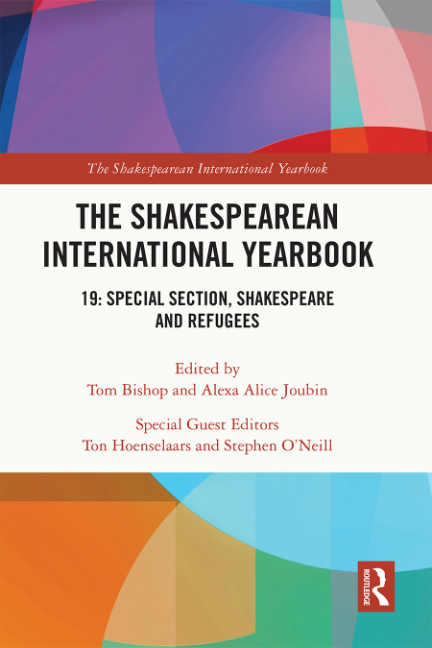Shakespearean International Yearbook 19: Shakespeare and Refugees
Routledge, 2022
Shakespeare has often offered orientation and even emotional refuge both to people in crisis and to those contemplating it. Shakespeare has also been performed by and for refugees.
Over time, the Western canon has been given various forms of moral authority, including the authority to address crisis. Shakespeare in particular has been deployed for socially and politically reparative purposes. The efficacy of the purported reparation differs among these performances.
As empowering and positive as these productions and academic initiatives can be, our present volume considers the moment dialectically, including the less comfortable question of whether some of these “reparative” projects for refugees might unconsciously exploit the refugee crisis as a trendy topic to serve mere palliation or even academic advancement rather than communities in need.
Parallel, political uses of Shakespeare for socially progressive causes have also emerged in Latin America, which is why the present volume features a second thematic section, edited by Tom Bishop and Alexa Alice Joubin. The five articles in our special section take the pulse of the vibrant artistic and scholarly creativity in the field since that time by examining the presence of Shakespeare variously on page and stage in Brazil, Chile, Cuba, Colombia, and the Caribbean.
The two clusters of essays on refuge and on Latin America speak to each other in their nuanced reframing of concepts such as the local and the global as well as antipathy and political uses of Shakespeare. An ethical concern around “outsourcing” social work to Shakespeare also informs both sections, raising questions about the use of canonical texts as much to reassure the privileged as to advance the interest of the oppressed.
